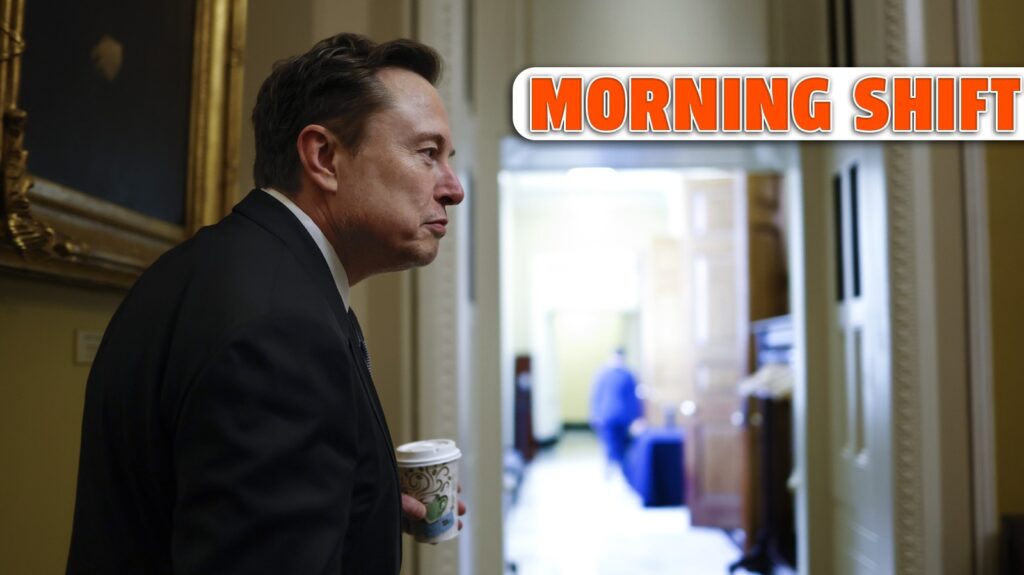In a dramatic turn of events, Tesla CEO Elon Musk has reignited his public feud with former President Donald Trump over a Republican-led budget bill that threatens to cut funding for electric vehicle (EV) tax credits. The confrontation, which unfolded on social media platforms, highlights the ongoing tensions between two of the world’s most influential figures.
Musk, who reportedly spent over $250 million to support Republican candidates in the recent election, expressed his frustration over the budget bill’s potential impact on the EV industry. On June 30, Musk took to X, the platform formerly known as Twitter, to criticize both Republicans and Democrats for the rising national debt, suggesting the formation of “the America Party” if the bill passes. “Our country needs an alternative to the Democrat-Republican uniparty so that the people actually have a VOICE,” Musk posted, adding that the current budget bill represents a “one-party country — the PORKY PIG PARTY!!”
Meanwhile, Trump responded by mocking Musk, suggesting that the billionaire has benefited significantly from government subsidies. “Elon may get more subsidy than any human being in history, by far,” Trump stated, hinting that Musk’s ventures, including Tesla and SpaceX, rely heavily on such financial support. The former president even suggested that the Dogecoin community, known as DOGE, could investigate these subsidies, exclaiming, “BIG MONEY TO BE SAVED!!!”
Musk’s Concerns Over Tesla’s Performance
The clash between Musk and Trump comes at a challenging time for Tesla. The car manufacturer is grappling with declining sales, exacerbated by Musk’s controversial political views and increasing competition in the EV market. According to data from the European Automobile Manufacturers Association, Tesla’s sales in Europe fell by 27.9% in May, marking the fifth consecutive month of declining sales in the region.
In China, Tesla’s market share has also dwindled, dropping to 7.6% for the first five months of 2025, down from 10% the previous year and a peak of 15% in 2020. This decline is attributed to the growing popularity of newer, feature-rich EVs from Chinese competitors, such as Xiaomi’s YU7 SUV, which has seen strong demand since its launch.
Though Musk has shifted his focus back to his companies, the backlash, along with customers choosing cheaper Chinese EVs, led to the fifth straight month of falling sales for Tesla in Europe.
The Senate’s Push to End EV Tax Credits
As Tesla navigates these challenges, the U.S. Senate is preparing to vote on a budget bill that would accelerate the end of the $7,500 EV tax credit. The proposed legislation aims to eliminate the credit by September 30, 2025, a move that has sparked debate among lawmakers and industry stakeholders.
The decision to hasten the removal of the tax credit underscores Congress’s willingness to diverge from the interests of automakers and dealers, who have advocated for a gradual phase-out to manage EV inventory. Critics argue that the bill will raise EV prices and undermine efforts to promote sustainable transportation, while simultaneously funding tax cuts for the wealthy and controversial immigration enforcement measures.
The Senate’s speedier timeline highlights how Congress is willing to buck the wishes of automakers and dealers who have advocated for a runway to offload EV inventory using the credit.
Xiaomi’s YU7: A New Contender in the EV Market
Amid these developments, Chinese tech giant Xiaomi has made significant strides in the EV sector with its YU7 crossover. The vehicle has garnered nearly a quarter of a million preorders within hours of its launch, though the company faces challenges in meeting this demand due to limited production capacity.
Customers who have placed orders for the YU7 are now facing wait times of up to 60 weeks, prompting complaints about the company’s ability to deliver. Despite these hurdles, the YU7’s popularity highlights the growing competition Tesla faces in the global EV market.
China’s Xiaomi is telling customers of its new YU7 electric sports utility vehicle they will have to wait more than a year to receive their cars, sparking a fresh wave of complaints against the company.
As the EV landscape continues to evolve, the ongoing tensions between Musk and Trump, coupled with legislative changes and emerging competitors, underscore the challenges and opportunities facing the industry. The coming months will be critical in determining the future of EVs in the United States and beyond.
